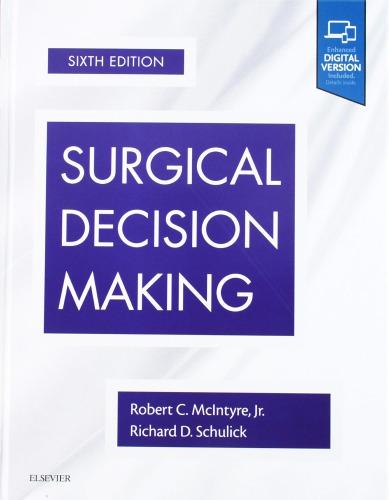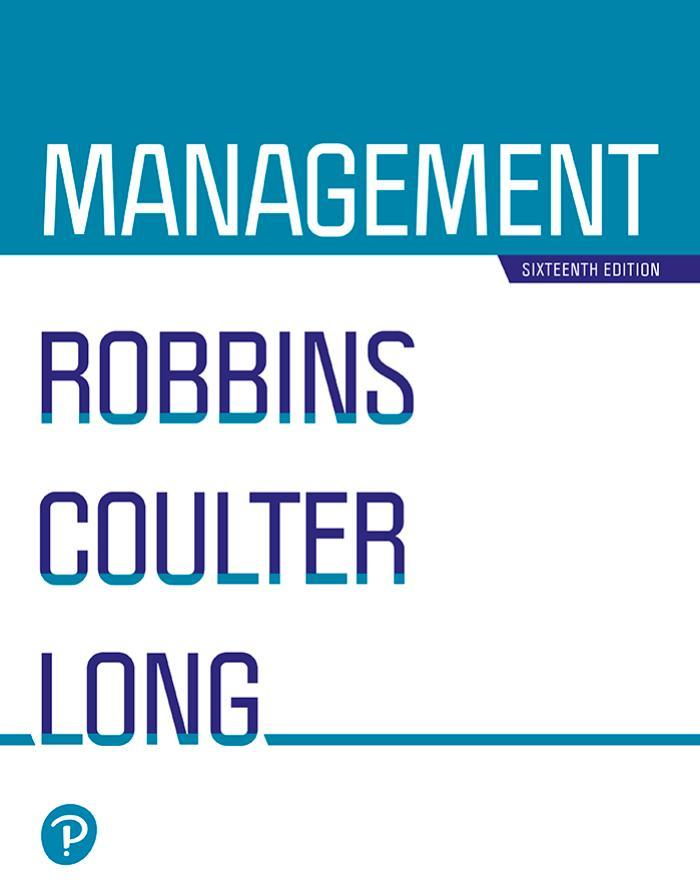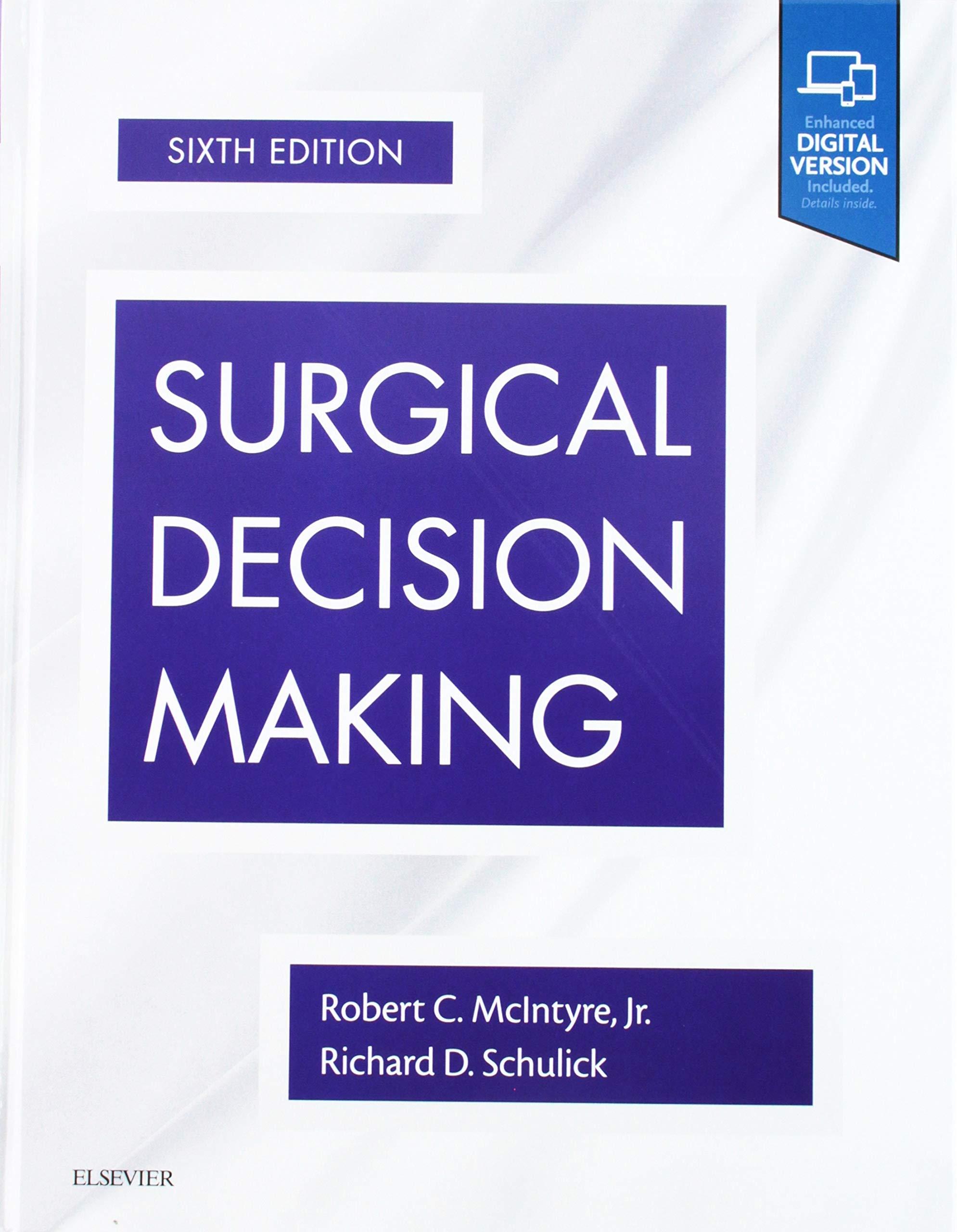Contributors
Jad Abou-Khalil, MD, CM, MSc(Epid), FRCSC
Associate Professor of Surgery
Hepato-Biliary and Pancreatic Surgery Unit Department of Surgery University of Ottawa Ottawa, Ontario
Anosheh Afghahi, MD, MPH
Assistant Professor
Division of Medical Oncology Department of Medicine
University of Colorado School of Medicine
Aurora, Colorado
Gretchen Ahrendt, MD
Director, Diane O’Connor Thompson Breast Center University of Colorado Hospital Professor Division of Surgical Oncology Department of Surgery University of Colorado School of Medicine Aurora, Colorado
Nita Ahuja, MD, MBA, FACS
Surgeon-in-Chief, Yale New Haven Hospital
William H. Carmalt Professor and Chair of Surgery and Oncology Department of Surgery Yale School of Medicine New Haven, Connecticut
Maria B. Albuja-Cruz, MD, FACS
Assistant Professor Division of GI, Trauma, and Endocrine Surgery Department of Surgery University of Colorado School of Medicine Aurora, Colorado
Yewande Alimi, MD, MHS Department of Surgery
MedStar Georgetown University Hospital Washington, DC
Peter J. Allen, MD
Chief, Division of Surgical Oncology Department of Surgery
Duke Cancer Institute
Duke University School of Medicine
Durham, North Carolina
Minerva A. Romero Arenas, MD, MPH
Assistant Professor of General and Endocrine Surgery Department of Surgery
The University of Texas Rio Grande Valley School of Medicine Edinburg, Texas
Brett D. Arnoldo, MD
Professor and Interim Chief
General and Acute Care Surgery University of Texas Southwestern Medical Center Dallas, Texas
Juan A. Asensio, MD
Director of Trauma Center and Trauma Program Creighton University Medical Center
Professor and Vice-Chairman of Surgery
Chief, Division of Trauma Surgery and Surgical Critical Care Department of Surgery
Creighton University School of Medicine Omaha, Nebraska
Chady Atallah, MD
Assistant Professor of Surgery Department of Surgery Johns Hopkins University School of Medicine Baltimore, Maryland
Lori Baird, MD, MBA
Chief, Trauma, Surgical Critical Care, and Acute Care Surgery Department of Surgery University of Miami Miami, Florida
Charles M. Balch, MD
Founding Editor-in-Chief Emeritus, Annals of Surgical Oncology
Professor of Surgery Department of Surgical Oncology University of Texas MD Anderson Cancer Center Houston, Texas
Carlton C. Barnett, Jr., MD, FACS
Chief, Surgical Oncology
Rocky Mountain Regional Veteran’s Affairs Medical Center
Professor Division of Surgical Oncology Department of Surgery
University of Colorado School of Medicine
Aurora, Colorado
Rachel E. Beard, MD
Assistant Professor
Rhode Island Hospital and the Lifespan Cancer Institute
Division of Hepatobiliary Surgery
Department of Surgery
Alpert Medical School of Brown University Providence, Rhode Island
Daine Bennett, MD Department of Surgery University of Colorado School of Medicine Aurora, Colorado
Walter L. Biffl, MD
Director, Trauma and Acute Care Surgery
N. Paul Whittier Chair of Trauma
Scripps Memorial Hospital La Jolla La Jolla, California
James H. Black, III, MD, FACS
Associate Professor and Chief of Vascular Surgery and Endovascular Therapy
The Johns Hopkins University School of Medicine Baltimore, Maryland
Virginia Borges, MD, MMSc
Professor
Division of Medical Oncology Department of Medicine University of Colorado School of Medicine Aurora, Colorado
Gregory M. Borst, MD
Trauma Acute Care Surgery University of Colorado Health–Memorial Hospital Colorado Springs, Colorado
Judy C. Boughey, MD Professor of Surgery Department of Surgery
Mayo Clinic College of Medicine Rochester, Minnesota
Jason C. Brainard, MD
Associate Professor Department of Anesthesiology University of Colorado School of Medicine Aurora, Colorado
Karen J. Brasel, MD, MPH
Professor and Program Director
Division of Trauma, Critical Care, and Acute Care Surgery Department of Surgery
Oregon Health and Science University Portland, Oregon
Brooke C. Bredbeck, MD Department of Surgery University of Michigan
Ann Arbor, Michigan
Robert E. Breeze, MD
Professor and Vice Chair Department of Neurosurgery
University of Colorado School of Medicine Aurora, Colorado
Murray F. Brennan, GNZM, MD
Benno C. Schmidt Chair in Clinical Oncology Department of Surgery
Memorial Sloan Kettering Cancer Center New York, New York
L.D. Britt, MD, MPH, DSc (Hon), FACS, FCCM
Henry Ford Professor and Edward J. Brickhouse Chairman Department of Surgery
Eastern Virginia Medical School
Norfolk, Virginia
Clay Cothren Burlew, MD
Director, Surgical Intensive Care Unit
Denver Health Medical Center
Denver, Colorado
Professor
Division of GI, Trauma, and Endocrine Surgery Department of Surgery University of Colorado School of Medicine Aurora, Colorado
John L. Cameron, MD
Alfred Blalock Distinguished Professor of Surgery Department of Surgery
The Johns Hopkins University School of Medicine Baltimore, Maryland
Eric M. Campion, MD
Assistant Professor
Denver Health Medical Center Denver, Colorado
Division of GI, Trauma, and Endocrine Surgery Department of Surgery University of Colorado School of Medicine Aurora, Colorado
DuyKhanh Pham. Ceppa, MD
Assistant Professor of Surgery
Division of Cardiothoracic Surgery Department of Surgery
Indiana School of Medicine Indianapolis, Indiana
Brandon C. Chapman, MD
Department of Surgery
University of Colorado School of Medicine
Aurora, Colorado
Akshay Pratap Chauhan, MBBS, MCh
Assistant Professor
Division of GI, Trauma, and Endocrine Surgery Department of Surgery
University of Colorado School of Medicine Aurora, Colorado
Tae Chong, MD
Associate Professor
Division of Plastic and Reconstructive Surgery Department of Surgery
University of Colorado School of Medicine Aurora, Colorado
Paul H. Chung, MD
Assistant Professor
Department of Urology
Jefferson University Hospitals Philadelphia, Pennsylvania
David J. Ciesla, MD
Chief Trauma Acute Care Surgery
Tampa General Hospital
Professor and Division Chief
Division of Trauma & Acute Care Surgery
Department of Surgery
Morsani College of Medicine
University of South Florida Tampa, Florida
Audra T. Clark, MD
Department of Surgery
University of Texas Southwestern Medical Center Dallas, Texas
Joseph C. Cleveland, Jr., MD
Fred and Carol Grover Endowed Chair and Professor of Surgery
Division of Cardiothoracic Surgery
Vice Chair of Faculty Affairs Department of Surgery
University of Colorado School of Medicine Aurora, Colorado
Kathryn E. Coan, MD
Assistant Professor
Department of General Surgery
Creighton Medical School Phoenix, Arizona
Mitchell J. Cohen, MD
The Bruce M Rockwell Distinguished Chair in Trauma Surgery
Denver Health Medical Center
Denver, Colorado
Professor and Vice Chair of Surgery
Division of GI, Trauma, and Endocrine Surgery Department of Surgery
University of Colorado School of Medicine Aurora, Colorado
Mary Condron, MD
Trauma and Acute Care Surgeon
Saint Charles Medical Center Bend, Oregon
Michelle L. Cowan, MD
Assistant Professor
Division of GI, Trauma, and Endocrine Surgery Department of Surgery University of Colorado School of Medicine Aurora, Colorado
Daniel Craig, MD Department of Neurosurgery University of Colorado School of Medicine Aurora, Colorado
Chasen A. Croft, MD
Associate Professor of Surgery Department of Surgery University of Florida Health Science Center Gainesville, Florida
Juliane Y. Cruz, MD Department of Surgery Huntington Hospital Pasadena, California
Alan P. B. Dackiw, MD, PhD, MBA Professor of Surgery Department of Surgery University of Texas Southwestern Medical Center Dallas, Texas
Thomas A. D’Amico, MD
Professor
Division of Cardiovascular and Thoracic Surgery
Vice Chair
Department of Surgery
Duke University Medical Center Durham, North Carolina
David R. Farley, MD Professor of Surgery Department of Surgery
Mayo Clinic College of Medicine Rochester, New York
Stephanie Davis, MD Department of Surgery University of Colorado School of Medicine Aurora, Colorado
Frederic W.-B. Deleyiannis, MD, MPhil, MPH Professor Division of Plastic and Reconstructive Surgery Department of Surgery University of Colorado School of Medicine Aurora, Colorado
Ronald P. DeMatteo, MD, FACS Vice Chair Department of Surgery Memorial Sloan Kettering Cancer Center New York, New York
Rodrigo Donalisio de Silva, MD Assistant Professor Denver Health Medical Center Denver, Colorado Division of Urology Department of Surgery University of Colorado School of Medicine Aurora, Colorado
Therese M. Duane, MD, MBA, CPE Professor Department of Surgery
John Peter Smith Health Network Fort Worth, Texas
Linda A. Dultz, MD, MPH Assistant Professor Department of Surgery University of Texas Southwestern Dallas, Texas
Barish H. Edil, MD Professor and Chair
John A. Schilling Chair in Surgery Department of Surgery University of Oklahoma College of Medicine Oklahoma City, Oklahoma
Jonathan E. Efron, MD
Associate Professor of Surgery and Urology Department of Surgery
The Johns Hopkins University School of Medicine Baltimore, Maryland
Bryan A. Ehlert, MD Assistant Professor Division of Vascular Surgery Department of Surgery East Carolina University Greenville, North Carolina
Oliver Fackelmayer, MD Department of Surgery University of Colorado School of Medicine Aurora, Colorado
Josefina C. Farra, MD Assistant Professor of Surgery Department of Surgery University of Miami Miami, Florida
Carlos A. Fernandez, MD, FACS
Assistant Professor Division of Trauma Surgery & Surgical Critical Care Department of Surgery Creighton University School of Medicine Omaha, Nebraska
Lisa Ferrigno, MD, MPH Assistant Professor Division of GI, Trauma, and Endocrine Surgery Department of Surgery University of Colorado School of Medicine Aurora, Colorado
Christina A. Finlayson, MD Professor Division of Surgical Oncology Department of Surgery University of Colorado School of Medicine Aurora, Colorado
Yuman Fong, MD Chairman Department of Surgery City of Hope Medical Center Duarte, California
Zhi Ven Fong, MD, MPH
Department of Surgery
Massachusetts General Hospital Boston, Massachusetts
Charles J. Fox, MD
Chief of Vascular Surgery
Denver Health Medical Center Denver, Colorado
Associate Professor of Surgery Division of Vascular Surgery and Endovascular Therapy
Department of Surgery University of Colorado School of Medicine Aurora, Colorado
Richard Frazee, MD Professor Department of Surgery
Baylor Scott & White Healthcare Texas A&M Health Science Center Temple, Texas
David A. Fullerton, MD
John T. M. Wright Endowed Chair in Heart Valve Surgery
Professor and Head Division of Cardiothoracic Surgery
Vice Chair of Research Department of Surgery
University of Colorado School of Medicine Aurora, Colorado
Csaba Gajdos, MD, FACS
Clinical Associate Professor Buffalo Veterans Affairs Medical Center Department of Surgery
University of Buffalo Jacobs School of Medicine and Biomedical Sciences Buffalo, New York
Maxx Gallegos, MD
Clinical Instructor
Department of Urology Michigan State University Detroit, Michigan
O. James Garden, CBE, BSc, MB ChB, MD, FRCSEd, FRCPEd, FRSE, FRCSCan(hon), FRACS(hon), FACS(hon), FRCS(hon), FCSHK(hon), FRCSI(hon) Regius Professor of Clinical Surgery
Department of Clinical Surgery
University of Edinburgh Royal Infirmary Edinburgh, Great Britain
Fiona Gaunay, MD
Colon and Rectal Surgeon Penn Medicine
Lancaster General Health University of Pennsylvania Health System Philadelphia, Pennsylvania
Susan L. Gearhart, MD
Associate Professor of Surgery Department of Surgery The Johns Hopkins University School of Medicine Baltimore, Maryland
David A. Geller, MD, FACS
Richard L. Simmons Professor of Surgery
Chief, Division of Hepatobiliary and Pancreatic Surgery Department of Surgery University of Pittsburgh Pittsburgh, Pennsylvania
Nicholas H. George Department of Emergency Medicine University of Maryland School of Medicine Baltimore, Maryland
Jean-Francois H. Geschwind, MD PreScience Labs LLC
Sepideh Gholami, MD
Assistant Professor Division of Surgical Oncology Department of Surgery University of California, Davis Sacramento, California
Alicia A. Heelan Gladden, MD Department of Surgery University of Colorado School of Medicine Aurora, Colorado
Ana Gleisner, MD, PhD
Assistant Professor Division of Surgical Oncology Department of Surgery University of Colorado School of Medicine Aurora, Colorado
Rene Gonzalez, MD Professor Division of Medical Oncology Department of Medicine University of Colorado School of Medicine Aurora, Colorado
Karyn A. Goodman, MD
Professor Department of Radiation Oncology
University of Colorado School of Medicine Aurora, Colorado
Melissa A. Gorman, MD
Assistant Professor Department of Orthopedics
University of Colorado School of Medicine Aurora, Colorado
Patrick T. Hangge, MD Department of Surgery
Mayo Clinic College of Medicine Scottsdale, Arizona
Laura A. Harmon, MD
Assistant Professor
Division of GI, Trauma, and Endocrine Surgery Department of Surgery
University of Colorado School of Medicine Aurora, Colorado
Taryn Hassinger, MD Department of Surgery
University of Virginia Charlottesville, Virginia
Quinton M. Hatch, MD
Madigan Army Medical Center Tacoma, Washington
Bryan R. Haugen, MD
Mary Rossick Kern and Jerome H. Kern Chair in Endocrine Neoplasms Research
Professor and Head
Division of Endocrinology, Metabolism, and Diabetes Department of Medicine
University of Colorado School of Medicine Aurora, Colorado
Jin He, MD, PhD
Assistant Professor
Division of Surgical Oncology Department of Surgery
The Johns Hopkins University School of Medicine Baltimore, Maryland
Alexandra Heerdt, MD, MPH
Attending Surgeon, Breast Service Department of Surgery
Memorial Sloan Kettering Cancer Center
Associate Professor of Surgery
Weill Cornell Medical School
New York, New York
Scott Helton, MD, FACS
Director Liver, Biliary, and Pancreas Surgery Center of Excellence
Digestive Disease Institute
Virginia Mason Medical Center Seattle, Washington
Thomas J. Herron, MD
Assistant Professor
Division of Trauma & Acute Care Surgery
Department of Surgery
Morsani College of Medicine
University of South Florida Tampa, Florida
Vanessa P. Ho, MD, MPH
Assistant Professor of Surgery Department of Surgery
Case Western Reserve University Cleveland, Ohio
Maggie McQueen Hodges, MD, MPH Department of Surgery
University of Colorado School of Medicine Aurora, Colorado
Jordan R. H. Hoffman, MPH, MD
Fellow in Cardiothoracic Surgery
Division of Cardiothoracic Surgery
Department of Surgery
University of Colorado School of Medicine Aurora, Colorado
Courtenay M. Holscher, MD Department of Surgery
The Johns Hopkins University School of Medicine Baltimore, Maryland
Tracy L. Hull, MD Professor of Surgery Department of Colon and Rectal Surgery
The Cleveland Clinic Foundation Cleveland, Ohio
Jonathan B. Imran, MD Department of Surgery
University of Texas Southwestern Medical Center Dallas, Texas
Kenji Inaba, MD
Associate Professor of Surgery, Anesthesia, and Emergency Medicine
Department of Surgery
University of Southern California Los Angeles, California
William R. Jarnagin, MD
Chief, Hepatopancreatobiliary Service
Benno C. Schmidt Professor of Surgical Oncology
Memorial Sloan Kettering Cancer Center Professor of Surgery
Weill Cornell Medical College New York, New York
Eric K. Johnson, MD, FACS, FASCRS
Associate Professor of Surgery MultiCare Colorectal Surgery
Uniformed Services University of the Health Sciences Tacoma, Washington
Bobby L. Johnson III, MD Instructor Department of Surgery
University of Cincinnati College of Medicine Cincinnati, OH
Edward L. Jones, MD, FACS
Assistant Professor
Rocky Mountain Regional Veteran’s Affairs Medical Center Division of GI, Trauma, and Endocrine Surgery Department of Surgery University of Colorado School of Medicine Aurora, Colorado
Teresa S. Jones, MD, FACS
Assistant Professor
Rocky Mountain Regional Veteran’s Affairs Medical Center Division of GI, Trauma, and Endocrine Surgery Department of Surgery University of Colorado School of Medicine Aurora, Colorado
Bellal A. Joseph, MD, FACS
Associate Professor of Surgery Department of Surgery Banner University Medical Center Tucson, Arizona
Stephanie Joyce, MD
Surgical Critical Care Fellow Department of Surgery University of Colorado School of Medicine Aurora, Colorado
Kyle J. Kalkwarf, MD
Assistant Professor
Division of Trauma and Acute Care Surgery Department of Surgery
University of Arkansas for Medical Sciences Little Rock, Arkansas
Amir Y. Kamel, PharmD, BCNSP
Clinical Specialist in Nutrition Support and Critical Care
University of Florida Health Shands Hospital
Clinical Assistant Professor
University of Florida College of Pharmacy
Gainesville, Florida
Farah Karipineni, MD, MPH
Endocrine Surgery Fellow
Division of Surgical Oncology Department of Surgery
The Johns Hopkins University School of Medicine Baltimore, Maryland
Howard S. Kaufman, MD, MBA
Chairman, Department of Surgery
Huntington Hospital
Medical Director, Huntington Hospital Cancer Center
Director of Colorectal Research Program, Huntington Medical Research Institutes Pasadena, California
Electron Kebebew, MD, FACS
Professor of Surgery
Chief, Division of General Surgery
Harry A. Oberhelman, Jr. And Mark L. Welton Professor Program Leader, Endocrine Oncology Program Department of Surgery and Stanford Cancer Institute School of Medicine, Stanford University Stanford, California
Abid D. Khan, MD
Trauma and Acute Care Surgeon Department of Surgery
University of Colorado Health–Memorial Hospital Colorado Springs, Colorado
David Khechoyan, MD
Assistant Professor
Division of Plastic and Reconstructive Surgery Department of Surgery
University of Colorado School of Medicine Aurora, Colorado
Fernando J. Kim, MD, MBA, FACS
Chief of Urology
Denver Health Medical Center
Denver, Colorado
Associate Professor Division of Urology
University of Colorado School of Medicine Aurora, Colorado
Teresa S. Kim, MD
Assistant Professor
Division of General Surgery, Section of Surgical Oncology Department of Surgery University of Washington Seattle, Washington
V. Suzanne Klimberg, MD, FACS
Professor and Director of Breast Cancer Program Department of Surgery
Winthrop P. Rockefeller Cancer Institute University of Arkansas Little Rock, Arkansas
Patrick D. Kohtz, MD Department of Surgery University of Colorado School of Medicine Aurora, Colorado
Rosemary A. Kozar, MD, PhD
Director of Translational Research
Associate Director of Shock Trauma Anesthesia Research Center
R. Adams Cowley Shock Trauma Center University of Maryland School of Medicine Baltimore, Maryland
Rachel Kruer, PharmD
Clinical Pharmacist, ICU
The Johns Hopkins University School of Medicine Baltimore, Maryland
Mustapha El Lakis, MD
Assistant Professor of Surgery University of Pittsburg Medical Center Seneca, Pennsylvania
Sepehr Lalezari, MD
Medical Staff
Department of Surgery
Good Samaritan Hospital Los Angeles, California
Lung W. Lau, MD
Department of Surgery
Case Western Reserve University Cleveland, OH
Harish Lavu, MD, FACS
Associate Professor
Chief, Section of Hepatopancreatobiliary Surgery Department of Surgery
Thomas Jefferson University Philadelphia, Pennsylvania
Ryan A. Lawless, MD
Assistant Professor
Denver Health Medical Center
Denver, Colorado
Division of GI, Trauma, and Endocrine Surgery
Department of Surgery
University of Colorado School of Medicine
Aurora, Colorado
John I. Lew, MD
Professor and Vice Chair of Surgery, Chief of Endocrine Surgery
DeWitt Daughtry Department of Surgery
University of Miami Miller School of Medicine
Miami, Florida
Aaron Lewis, MD
Assistant Clinical Professor
Division of Surgical Oncology, Department of Surgery
City of Hope National Medical Center
Duarte, California
Anne O. Lidor, MD, MPH, FACS Professor
Department of Surgery
University of Wisconsin School of Medicine and Public Health
Madison, Wisconsin
Keith D. Lillemoe, MD
Surgeon in Chief
Massachusetts General Hospital
HMS W. Gerald Austen Professor of Surgery
Harvard Medical School
Boston, Massachusetts
Gary Linkov, MD
Instructor
Otolaryngology—Head and Neck Surgery
Lewis Katz School of Medicine
Temple University Hospital Philadelphia, Pennsylvania
Pamela A. Lipsett, MD, MHPE, MCCM
Warfield M. Firor Endowed Professorship in Surgery
Program Director, Residency in General Surgery and Fellowship in Surgical Critical Care
Co-Director, Surgical Intensive Care Units
Assistant Dean of Assessment and Evaluation
The Johns Hopkins University School of Medicine
Baltimore, Maryland
Tarik D. Madni, MD Department of Surgery
University of Texas Southwestern Medical Center Dallas, Texas
Gregory A. Magee, MD, MSc Assistant Professor Department of Surgery University of Southern California Los Angeles, California
David Mann, MD Department of Neurosurgery University of Colorado School of Medicine Aurora, Colorado
David Mathes, MD Professor and Chief
Division of Plastic and Reconstructive Surgery Department of Surgery
University of Colorado School of Medicine Aurora, Colorado
Sarah Mayson, MD Assistant Professor
Division of Endocrinology, Metabolism, and Diabetes Department of Medicine
University of Colorado School of Medicine Aurora, Colorado
Martin D. McCarter, MD Professor
Division of Surgical Oncology Department of Surgery University of Colorado School of Medicine Aurora, Colorado
Ashley K. McCusker, MD, MSc
Trauma and Acute Care Surgery
University of Colorado Health–Memorial Hospital Colorado Springs, Colorado
Robert C. McIntyre, Jr., MD, FACS Professor and Chief
Division of GI, Trauma, and Endocrine Surgery
Vice Chair of Finance Department of Surgery
University of Colorado School of Medicine Aurora, Colorado
Travis J. McKenzie, MD
Division of Breast, Endocrine Metabolic and GI Surgery Department of Surgery
Mayo Clinic College of Medicine Rochester, Minnesota
Robert A. Meguid, MD, MPH/MSPH
Associate Professor
Division of Cardiothoracic Surgery Department of Surgery University of Colorado School of Medicine Aurora, Colorado
Caleb Mentzer, DO Department of Surgery
Ryder Trauma Center
Jackson Memorial Hospital
Miller School of Medicine of the University of Miami Miami, Florida
Benjamin D. Medina, MD Research Fellow Department of Surgery
Memorial Sloan Kettering Cancer Center New York, New York
John C. Messenger, MD Professor
Division of Cardiology Department of Medicine University of Colorado School of Medicine Aurora, Colorado
Bria Meyer, MD Department of Surgery University of Nebraska Medical Center Omaha, Nebraska
Jordan D. Miller, DO Assistant Professor Division of Cardiothoracic Surgery Department of Surgery University of Kentucky Lexington, Kentucky
John D. Mitchell, MD Chief, General Thoracic Surgery University of Colorado Hospital Professor
Division of Cardiothoracic Surgery Department of Surgery
University of Colorado School of Medicine Aurora, Colorado
Damian James Mole, BMedSc, MBChB, PhD, FRCS Honorary Consultant Surgeon Department of Surgery
Senior Clinical Lecturer
MRC Centre for Inflammation Research University of Edinburgh Edinburgh, Great Britain
Paul Nobert Montero, MD, FACS
Associate Professor
Division of GI, Trauma, and Endocrine Surgery
Department of Surgery
University of Colorado School of Medicine Aurora, Colorado
Ernest E. Moore, MD
Director, Surgical Research
Denver Health Medical Center
Denver, Colorado
Professor
Division of GI, Trauma, and Endocrine Surgery
Vice Chair for Research
Department of Surgery
University of Colorado School of Medicine Aurora, Colorado
Frederick A. Moore, MD
Professor and Chief
Division of Acute Care Surgery
Department of Surgery
University of Florida School of Medicine
Gainesville, Florida
Hunter Burroughs Moore, MD, PhD Department of Surgery
University of Colorado School of Medicine Aurora, Colorado
John T. Moore, MD
Associate Chief of Staff for Education
Rocky Mountain Regional Veteran’s Affairs Medical Center
Volunteer Clinical Faculty
Division of GI, Trauma, and Endocrine Surgery Department of Surgery Aurora, Colorado
Laura J. Moore, MD, FACS
Medical Director, Shock Trauma Intensive Care Unit
Texas Trauma Institute
Memorial Hermann Hospital
Texas Medical Center
Associate Professor
Chief of Surgical Critical Care
University of Texas Health Science Center Houston, Texas
Eliza E. Moskowitz, MD
Department of Surgery
University of Colorado School of Medicine Aurora, Colorado
Benedetto Mungo, MD
Department of Surgery
University of Colorado School of Medicine
Aurora, Colorado
Kenric M. Murayama, MD
Chair
Department of Surgery
John A. Burns School of Medicine
University of Hawaii at Manoa Honolulu, Hawaii
Alexander P. Nagle, MD
Assistant Professor Department of Surgery
Northwestern University Feinberg School of Medicine Chicago, Illinois
Attila Nakeeb, MD
Professor
Department of Surgery
Indiana University of School of Medicine Indianapolis, Indiana
Nicholas Namias, MD, MBA, FACS, FCCM
Medical Director
Ryder Trauma Center
Jackson Memorial Hospital
Chief, Division of Trauma and Acute Care Surgery University of Miami Miller School of Medicine Miami, Florida
Lena M. Napolitano, MD
Director, Trauma and Surgical Critical Care Professor and Division Chief
Acute Care Surgery
Associate Chair
Department of Surgery University of Michigan Health System
Ann Arbor, Michigan
Erinn Ogburn, MD Department of Surgery University of Kentucky Lexington, Kentucky
Dmitry Oleynikov, MD, FACS
Chief of Gastrointestinal Minimally Invasive Surgery Department of Surgery
University of Nebraska Medical Center Omaha, Nebraska
Douglas M. Overbey, MD Department of Surgery
University of Colorado School of Medicine
Aurora, Colorado
Alessandro Paniccia, MD Department of Surgery University of Colorado School of Medicine Aurora, Colorado
Ian M. Paquette, MD
Associate Professor of Surgery Department of Surgery University of Cincinnati Cincinnati, Ohio
Bruce C. Paton, MD Director, The Given Institute Aspen, Colorado
Emeritus Clinical Professor of Surgery Department of Surgery University of Colorado School of Medicine Aurora, Colorado
Marco G. Patti, MD
Professor of Medicine and Surgery Department of Medicine and Surgery Center for Esophageal Diseases and Swallowing University of North Carolina at Chapel Hill Chapel Hill, North Carolina
Michael Patz, MD Department of Anesthesiology Mercy Regional Medical Center Durango, Colorado
Erik Peltz, DO
Assistant Director, Trauma and Acute Care Surgery University of Colorado Hospital
Assistant Professor Division of GI, Trauma, and Endocrine Surgery Department of Surgery University of Colorado School of Medicine Aurora, Colorado
Nancy Dugal Perrier, MD, FACS
Walter and Ruth Sterling Endowed Professor of Surgery Surgical Oncology
University of Texas MD Anderson Cancer Center Houston, Texas
Frederic Pieracci, MD, MPH
Associate Professor
Denver Health Medical Center Denver, Colorado
Division of GI, Trauma, and Endocrine Surgery Department of Surgery University of Colorado School of Medicine Aurora, Colorado
Amit Prabhakar, MD Fellow
Anesthesiology and Critical Care Fellow The Johns Hopkins University School of Medicine Baltimore, Maryland
Sanjeev Puri, MD Department of Surgery University of Colorado School of Medicine Aurora, Colorado
Jennifer M. Racz, MD
Assistant Professor of Surgery Department of Surgery Mayo Clinic College of Medicine Rochester, Minnesota
Michael Radomski, MD
Trauma and Acute Care Surgery Fellow Department of Surgery Denver Health Medical Center Denver, Colorado University of Colorado School of Medicine Aurora, Colorado
Christopher D. Raeburn, MD
Associate Professor
Division of GI, Trauma, and Endocrine Surgery Department of Surgery University of Colorado School of Medicine Aurora, Colorado
Judi Ann Ramiscal, MD Department of Surgery University of Hawaii at Manoa Honolulu, Hawaii
Bradley N. Reames, MD
Assistant Professor Division of Surgical Oncology Department of Surgery
University of Nebraska Medical Center Omaha, Nebraska
T. Brett Reece, MD
Director, Thoracic Aortic Program
University of Colorado Hospital Professor
Division of Cardiothoracic Surgery Department of Surgery University of Colorado School of Medicine Aurora, Colorado
John A. Ridge, MD, PhD, FACS
Chief, Head and Neck Surgery
Professor and Vice-Chair, Department of Surgical Oncology
Louis Della Penna Family Chair in Head and Neck Oncology
Fox Chase Cancer Center Temple Health Philadelphia, Pennsylvania
David Rivadeneira, MD, MBA, FACS, FASCRS
Director of Colorectal Surgery and Surgical Services
Huntington Hospital Huntington, New York Professor of Surgery
Hofstra University School of Medicine Hempstead, New York
Amy Rivere, MD
Breast Surgical Oncologist Ochsner Medical Center
New Orleans, Los Angeles
Tyler P. Robin, MD, PhD Department of Radiation Oncology University of Colorado Hospital Aurora, Colorado
Thomas N. Robinson, MD, FACS Chief of Surgery
Rocky Mountain Regional Veteran’s Affairs Medical Center Professor
Division of GI, Trauma, Endocrine Surgery Department of Surgery University of Colorado School of Medicine Aurora, Colorado
Stanley James Rogers, MD, FACS, FRCS Professor Department of Surgery
University of California, San Francisco San Francisco, California
Martin D. Rosenthal, MD
Assistant Professor Department of Surgery University of Florida Gainesville, Florida
Hai Nguyen Salfity, MD Department of Surgery
Indiana University School of Medicine
Indianapolis, Indiana
Jason M. Samuels, MD Department of Surgery
University of Colorado School of Medicine
Aurora, Colorado
Richard A. Santucci, MD Specialist-in-Chief Department of Urology
The Detroit Medical Center
Clinical Professor
Surgical Specialties
Michigan State College of Osteopathic Medicine
Detroit, Michigan
Robert G. Sawyer, MD Professor and Chair Department of Surgery
Western Michigan University Homer Stryker MD School of Medicine
Kalamazoo, Michigan
Morgan Schellenberg, MD, MPH
Trauma/Critical Care Fellow
Trauma and Surgical Critical Care
Los Angeles USC Medical Center
Los Angeles, California
Todd R. Schlachter, MD
Assistant Professor
Department of Radiology and Biomedical Imaging
Yale University School of Medicine
New Haven, Connecticut
Francisco Schlottmann, MD, MPH Department of Surgery
University of North Carolina Chapel Hill, New Jersey
Jonathan A. Schoen, MD
Associate Professor
Division of GI, Trauma, and Endocrine Surgery
Department of Surgery
University of Colorado School of Medicine Aurora, Colorado
Thomas J. Schroeppel, MD
Trauma Medical Director
Trauma and Acute Care Surgery
University of Colorado Health–Memorial Hospital
Colorado Springs, Colorado
Michael Schweitzer, MD
Director, Johns Hopkins Center for Bariatric Surgery
Associate Professor of Surgery
The Johns Hopkins University School of Medicine Baltimore, Maryland
Luke V. Selby Department of Surgery
University of Colorado School of Medicine Aurora, Colorado
Paulesh K. Shah, MD
Assistant Professor of Surgery Department of Surgery
University of Maryland School of Medicine Baltimore, Maryland
Eduardo Smith Singares, MD, FACS Director SICU
University of Illinois Hospital and Health Sciences System Chief, Division of Surgical Critical Care Department of Surgery
University of Illinois College of Medicine at Chicago Chicago, Illinois
Wayne Soong, MD, FCCP Department of Anesthesiology
Rocky Mountain Regional Veteran’s Affairs Medical Center Aurora, Colorado
Philip F. Stahel, MD
Professor of Orthopedics and Neurosurgery
Rocky Vista University College of Osteopathic Medicine Parker, Colorado
Gregory Stettler, MD Department of Surgery University of Colorado School of Medicine Aurora, Colorado
Lauren Steward, MD, MHSA, MPHS
Assistant Professor
Division of GI, Trauma, and Endocrine Surgery Department of Surgery
University of Colorado School of Medicine Aurora, Colorado
Gregory Van Stiegmann, MD
John H. and Cynthia H. Schultz Endowed Chair and Professor Division of GI, Trauma, and Endocrine Surgery Department of Surgery
University of Colorado School of Medicine Aurora, Colorado
Jason W. Stoneback, MD
Chief, Orthopedic Trauma and Fracture Surgery
University of Colorado Hospital
Assistant Professor Department of Orthopedics
University of Colorado School of Medicine Aurora, Colorado
Andrea M. Stroud, MD, MS
Assistant Professor Department of Surgery
Oregon Health & Science University Portland, Oregon
Joshua J. Sumislawski, MD Department of Surgery University of Colorado School of Medicine Aurora, Colorado
Jon S. Thompson, MD Professor of Surgery Department of Surgery University of Nebraska Medical Center Omaha, Nebraska
Robert J. Torphy, MD Department of Surgery University of Colorado School of Medicine Aurora, Colorado
Becky B. T. King, MD Department of Surgery University of Colorado School of Medicine Aurora, Colorado
Jennifer F. Tseng, MD, MPH Chief of Surgery
Boston Medical Center Chair Department of Surgery
Boston University School of Medicine Boston, Massachusetts
Anthony P. Tufaro, DDS, MD, FACS
Associate Professor Department of Plastic and Reconstructive Surgery
Associate Professor Department of Oncology
The Johns Hopkins University School of Medicine
Baltimore, Maryland
John Twomey, MD
Retired Director, Burn Center Department of Surgery
Hennepin County Medical Center Minneapolis, Minnesota
Todd F. VanderHeiden, MD Department of Orthopaedics
Denver Health Medical Center Denver, CO
Associate Professor
University of Colorado School of Medicine Aurora, Colorado
George C. Velmahos, MD, PhD, MSEdpel
Division Chief of Trauma, Emergency Surgery, and Surgical Critical Care
Massachusetts General Hospital Boston, Massachusetts
Catherine Velopulos, MD, MHS
Associate Professor
Division of GI, Trauma, and Endocrine Surgery Department of Surgery University of Colorado School of Medicine Aurora, Colorado
Neil Venardos, MD
Division of Cardiothoracic Surgery Department of Surgery University of Colorado School of Medicine Aurora, Colorado
Bryan B. Voelzke, MD, FACS Spokane Urology Spokane, Washington
Jon D. Vogel, MD
Director of Colorectal Surgery
University of Colorado Hospital
Associate Professor
Division of GI, Trauma, and Endocrine Surgery Department of Surgery University of Colorado School of Medicine Aurora, Colorado
Anne Lambert Wagner, MD, FACS
Medical Director of the Burn Center University of Colorado Hospital
Associate Professor
Division of GI, Trauma, and Endocrine Surgery Department of Surgery
University of Colorado School of Medicine Aurora, Colorado
Michel Wagner, MD, FACS
Assistant Professor
Division of Trauma Surgery and Surgical Critical Care Department of Surgery Creighton University Omaha, Nebraska
Carrie D. Walsh, BA
Thomas Jefferson University Philadelphia, Pennsylvania
Tracy S. Wang, MD, MPH Professor
Chief, Section of Endocrine Surgery Department of Surgery
Medical College of Wisconsin Milwaukee, Wisconsin
Michael Weyant, MD Professor
Division of Cardiothoracic Surgery Department of Surgery
University of Colorado School of Medicine Aurora, Colorado
Elizabeth C. Wick, MD
Associate Professor Department of Surgery
The Johns Hopkins University School of Medicine Baltimore, Maryland
Krzysztof Wikiel, MD
Assistant Professor of Surgery
Rocky Mountain Regional Veteran’s Affairs Medical Center Aurora, Colorado
Arek Wiktor, MD, FACS
Assistant Director of the Burn Center University of Colorado Hospital
Assistant Professor
Division of GI, Trauma, and Endocrine Surgery Department of Surgery University of Colorado School of Medicine Aurora, Colorado
David J. Winchester, MD
Senior Attending Department of Surgery
NorthShore University HealthSystem
Evanston, Illinois
Clinical Professor
Department of Surgery University of Chicago Chicago, Illinois
Steven E. Wolf, MD, FACS
Chief of Staff
Shriners Hospitals for Children - Galveston
Professor and Chief
JD and LH Jamail Distinguished Chair Division of Burn and Trauma Surgery Vice-Chairman, Finance
Department of Surgery
University of Texas Medical Branch, Galveston, Texas
Franklin L. Wright, MD
Assistant Professor
Division of GI, Trauma, and Endocrine Surgery Department of Surgery University of Colorado School of Medicine Aurora, Colorado
Charles J. Yeo, MD, FACS
Samuel D. Gross Professor and Chair Department of Surgery
Sidney Kimmel Medical College at Thomas Jefferson University Philadelphia, Pennsylvania
Andrew J. Young, MD
Department of General Surgery
Naval Hospital Bremerton Bremerton, Washington
Tonia M. Young-Fadok, MD Professor of Surgery Department of Surgery Mayo Clinic College of Medicine Phoenix, Arizona
Martha Zeiger, MD
S. Hurt Watts Professor and Chair Department of Surgery University of Virginia School of Medicine Charlottesville, Virginia
Frank Z. Zhao, MD Queen’s Medical Center
John A. Burns School of Medicine University of Hawaii at Manoa Honolulu, Hawaii
Brittany A. Zwischenberger, MD
Assistant Professor Division of Cardiothoracic Surgery Department of Surgery Duke University Durham, North Carolina
Joseph B. Zwischenberger, MD
Johnston-Wright Professor and Chair Department of Surgery University of Kentucky Lexington, Kentucky














